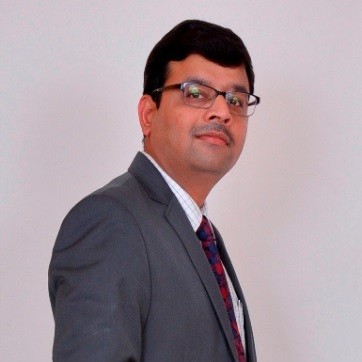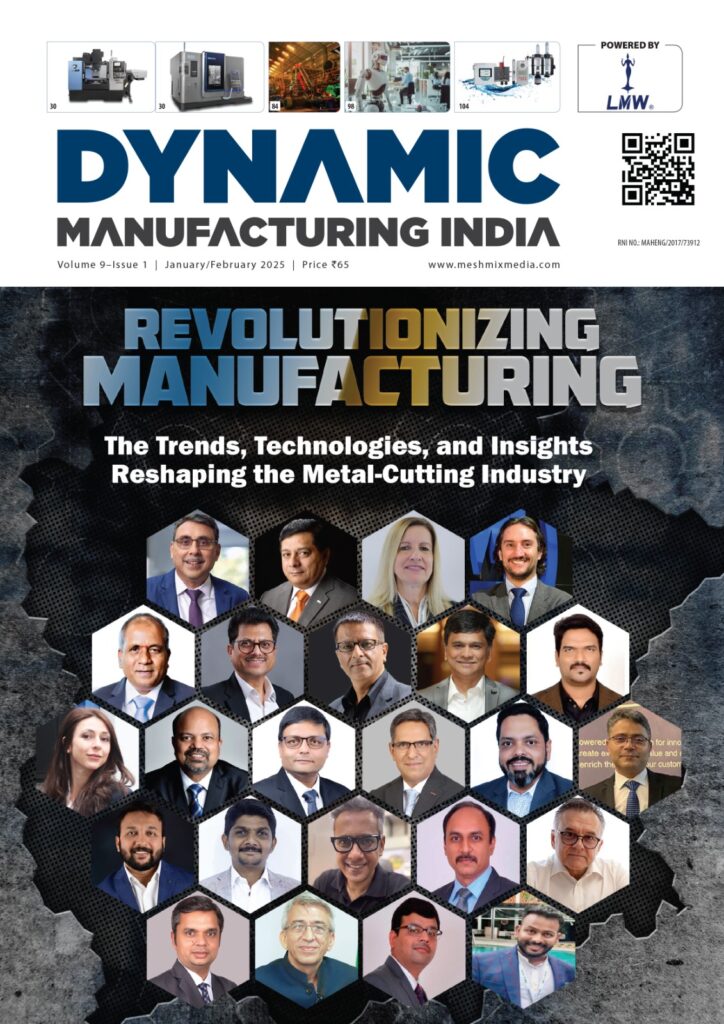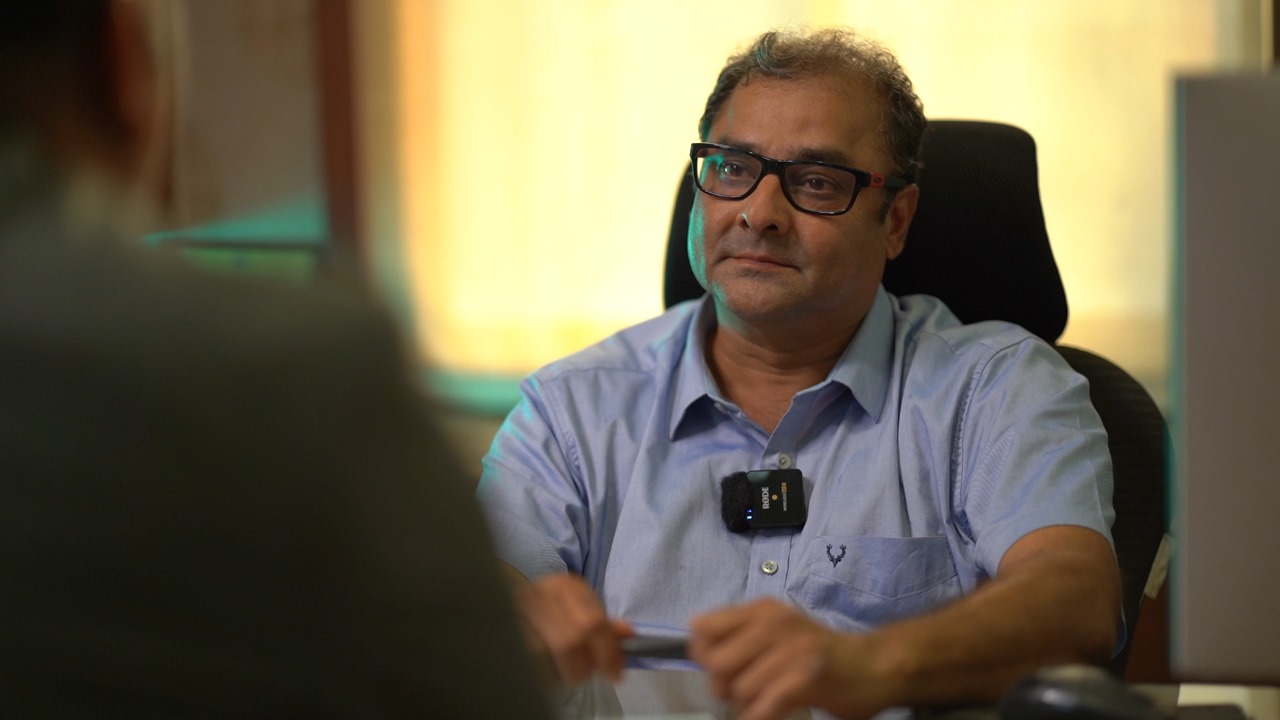Driving Innovation and Sustainability
Sharad Kulkarni, MD India and Sales Director Asia, Dormer Pramet India Pvt. Ltd., on Redefining Advanced Manufacturing with Precision, Sustainability, and Digitalization

1) What recent advancements in metal-cutting technology have had the most transformative impact on efficiency and precision?
In recent years, the metal-cutting industry has witnessed significant strides with advancements in digitalization, material innovation, and automation transforming this industry. Lightweighting, driven by additive manufacturing technologies, has emerged as a pivotal trend and at Dormer Pramet, we’re expanding our tooling portfolio to address these growing demands, especially in semi-finish applications.
Another game-changer has been the integration of automation and AI in manufacturing. Recognizing this growing trend, we’ve also introduced AI-driven quality control processes that can detect and address defects in real-time during production. This not only ensures higher precision but also significantly optimizes efficiency, aligning with our commitment to staying at the forefront of industry innovation.
Relentless efforts in R&D have enabled Dormer Pramet to bring in new generation of grades, geometries and coatings for various categories of workpiece materials which in turn had an noticeable positive impact on customer’s manufacturing process and bringing in overall efficiency.
2) How is the industry adapting to sustainable manufacturing practices, and what specific initiatives are helping to reduce environmental impact?
Sustainability has become a central focus for the manufacturing industry with several companies embracing innovations that minimize waste, reduce energy consumption, and promote recyclability. At Dormer Pramet as well, sustainability is deeply embedded in our operations and purpose, driving us to implement energy-efficient and environmentally friendly initiatives. For instance, we recently adopted an energy efficient transition of switching to vacuum furnaces, from traditional saltwater furnaces. We also have significant measures in place to reduce water usage and prevent pollution within our manufacturing plants.
Recognizing the growing importance of material efficiency and the circular economy within this industry we have also introduced a carbide recycling program that enables used carbide from our customers to be recycled into new tools, promoting a sustainable lifecycle for our products and reducing resource dependence.
Additionally, the adoption of Industry 4.0 technologies is transforming how resources are utilized, with real-time monitoring systems. Dormer Pramet is committed to advancing in this space as well, ensuring that our practices align with the industry’s shift towards greener, more responsible manufacturing.
We are also looking at making our packaging more environmentally friendly and contributing to sustainability by using recyclable plastic boxes.
3) With digitalization reshaping manufacturing, what new skills are essential for today’s workforce, and how is the industry addressing the skills gap?
Digitalization is transforming the manufacturing landscape, making skills in areas like data analytics, automation, AI integration, and advanced machining techniques essential for today’s workforce. The shift requires not only technical expertise but also adaptability to new technologies and processes.
We recognize the importance of bridging the skills gap to support this evolution and emphasize on continuous learning by offering training programs and workshops tailored to equip our workforce with the skills needed for the digital era.
Additionally, our e-learning platforms and interactive webinars ensure that both our employees and customers stay informed about the latest innovations and applications in the industry.
4) What trends are driving the current demand for metal-cutting solutions, and how do you foresee the industry adapting to these trends?
The current demand for metal-cutting solutions is primarily driven by the need for reduced tool wear, enhanced efficiency, and improved productivity. Advanced materials like tungsten carbide, ceramics, and diamond are increasingly in demand as they enable manufacturers to meet these objectives with greater precision and durability.
One of the most significant trends influencing the industry is the shift toward electric vehicles (EVs) in the automotive sector. This shift has prompted a move toward lightweight materials such as aluminum, which are essential for improving vehicle efficiency. The growing use of round tools and aluminum-based materials in cutting applications has further supported this evolution, offering enhanced productivity and minimized tool wear.
In the aerospace industry, precision is critical in this sector, and we have noticed a rising need for cutting-edge tools that can handle lightweight yet high-strength materials. On the other hand, the heavy industry sector demands robust and reliable tools capable of enduring the rigorous requirements of large-scale machining.
Our endeavour has always been to continuously adapt to these trends by expanding our tooling portfolio and developing innovative solutions tailored to the unique needs of each sector.
5) What do you view as the most significant challenges facing the metal-cutting industry today, and what steps is your organization taking to stay competitive?
One of the most significant challenges in the metal-cutting industry today is the price pressure due to the highly competitive market environment, particularly in regions like India, where the population and demand are growing. Manufacturers must constantly focus on improving productivity, reducing costs, and staying ahead of technological advancements. At Dormer Pramet, we address these challenges by offering a comprehensive range of products that cater to different price points and performance levels. Additionally, the integration of automation and AI into our production processes allows us to reduce operational costs while maintaining high quality. Another challenge is the need to stay aligned with the growing trends in sustainability. Dormer Pramet’s commitment to sustainable practices, such as adopting energy-efficient technologies and reducing waste, help us stay competitive in the evolving market.

E copy of the magazine – https://www.machineinsider.com/dynamic-manufacturing-india-jan-feb-2025-edition/


